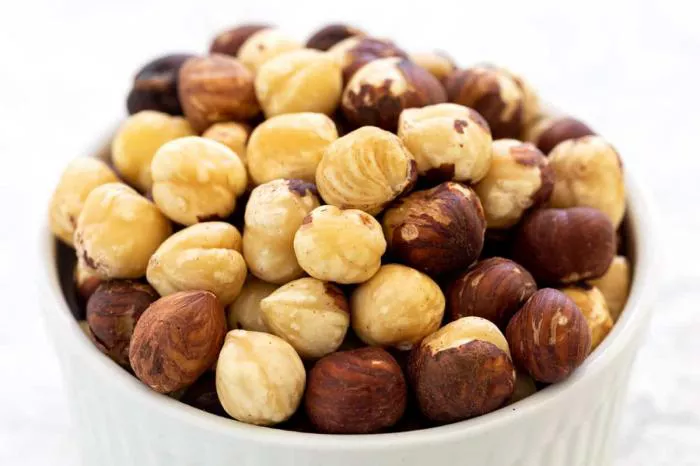Breastfeeding is a crucial time for both mothers and infants. It is essential for mothers to maintain a balanced diet to provide the best nutrition for their babies. Among the many foods that breastfeeding mothers consider, nuts often come up. This article explores whether it is safe to eat nuts while breastfeeding.
Nutritional Benefits of Nuts
Nuts are packed with essential nutrients that can benefit breastfeeding mothers. They are a great source of healthy fats, protein, vitamins, and minerals. Some of the key nutrients found in nuts include:
Healthy Fats: Nuts contain monounsaturated and polyunsaturated fats, which are good for heart health. These fats can help reduce inflammation and support overall well-being.
Protein: Nuts provide a good amount of protein, which is vital for repairing tissues and producing milk.
Vitamins and Minerals: Nuts are rich in vitamin E, magnesium, and potassium. These nutrients support immune function and muscle health, which are crucial during the postpartum period.
Fiber: The fiber in nuts aids digestion and can help prevent constipation, a common issue for new mothers.
Safety of Eating Nuts While Breastfeeding
Most health experts agree that nuts are safe to consume while breastfeeding. However, there are a few considerations to keep in mind:
Allergies
If a mother has a nut allergy, she should avoid nuts while breastfeeding. There is a possibility that allergens could pass into breast milk. Babies can develop allergies if they are exposed to certain foods early on. If a mother has a family history of food allergies, it may be best to consult with a healthcare provider before including nuts in her diet.
Baby’s Reaction
Some babies may show signs of an allergic reaction after their mother eats nuts. Signs can include:
- Skin rashes
- Swelling
- Diarrhea
- Vomiting
If a mother notices any of these symptoms in her baby after eating nuts, she should stop consuming them and consult a pediatrician.
Types of Nuts to Consider
Not all nuts are created equal. Here are some common types of nuts and their benefits:
Almonds
Almonds are a popular choice for breastfeeding mothers. They are high in vitamin E, calcium, and magnesium. Eating almonds may help boost milk production. They also provide a good source of protein.
Walnuts
Walnuts are rich in omega-3 fatty acids, which are beneficial for brain development in infants. Including walnuts in the diet can provide essential fatty acids that support the baby’s growth and development.
Cashews
Cashews are creamy and delicious. They are a good source of zinc, which is important for immune function. Cashews also contain iron, which helps prevent anemia in new mothers.
Pistachios
Pistachios are a tasty and nutritious snack. They contain fiber, protein, and healthy fats. Eating pistachios may help with weight management during breastfeeding.
Hazelnuts
Hazelnuts are packed with vitamins and minerals. They are a good source of folate, which is important for cell development. Hazelnuts also provide antioxidants that support overall health.
Portion Control
While nuts are nutritious, they are also calorie-dense. It is essential for breastfeeding mothers to practice portion control. A small handful of nuts per day is generally recommended. This amount allows mothers to benefit from the nutrients without consuming excessive calories.
Snacking on Nuts
Nuts make for a great snack. They are convenient and portable. Here are some ideas for incorporating nuts into your diet:
Trail Mix: Combine nuts with dried fruits and seeds for a nutritious snack.
Nut Butter: Spread almond or peanut butter on whole-grain toast or use it as a dip for fruits and vegetables.
Salads: Add chopped nuts to salads for an extra crunch and flavor.
Smoothies: Blend nuts or nut butter into smoothies for added protein and creaminess.
Monitoring Your Diet
It is essential to maintain a balanced diet while breastfeeding. This includes consuming a variety of foods to ensure adequate nutrient intake. In addition to nuts, mothers should include:
Fruits and Vegetables: These provide essential vitamins, minerals, and fiber.
Whole Grains: Foods like brown rice, oats, and whole-grain bread offer energy and nutrients.
Lean Proteins: Sources such as chicken, fish, beans, and tofu are vital for recovery and milk production.
Hydration
Staying hydrated is equally important for breastfeeding mothers. Drinking enough water helps maintain milk supply. Nuts can be high in sodium, so it is best to choose unsalted varieties. Pairing nuts with plenty of water ensures optimal hydration.
Conclusion
In summary, nuts can be a healthy addition to a breastfeeding mother’s diet. They provide essential nutrients that benefit both mothers and their babies. However, it is crucial to monitor for any signs of allergies in both mothers and babies.
Mothers should also practice portion control and ensure a balanced diet rich in various food groups. By doing so, they can enjoy the nutritional benefits of nuts while supporting their breastfeeding journey.
If there are any concerns about eating nuts while breastfeeding, it is always best to consult a healthcare professional. This ensures that both mother and baby remain healthy and happy.
Related topics:


